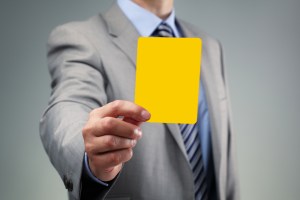
Ethics Advisory Opinion 22-02 fielded two marketing questions from a lawyer concerning a website, Expertise.com. This website finds and reviews service professionals and states that it researches businesses by using customer referrals, public records, accreditations and licenses and mystery shoppers.
Some law firms are listed on the site without the knowledge of the lawyers through the site’s unilateral research and screening. The site states that it lists businesses alphabetically, but it allows law firms to submit to be reviewed and included at no cost. The site indicates this process takes approximately one year to complete. A law firm can also purchase a “featured placement” to take advantage of being seen first on the website page and to include links to the law firm’s social media.
The lawyer’s questions were:
- If an attorney or law firm pays for a featured placement on Expertise.com, does that attorney violate Rule 7.4(b) by holding the law firm and its attorneys out as experts by virtue of the website’s name?
2. Does paying for a featured placement on Expertise.com violate Rule 7.2(c)?
The Ethics Advisory Committee responded definitely: “Lawyer may not participate in any way in marketing via Expertise.com.” Actively participating in an online business listing at a website whose stock language violates the advertising rules is itself a violation of the advertising rules, according to the Committee.
The Committee referred to an earlier EAO: 09-10 which opined that a lawyer who adopts, endorses, or claims an online directory listing takes responsibility under the Rules for all content of the listing and general content of the directory itself, regardless of who created the material. While the prior opinion focused on comparative language contained in client testimonials and endorsements submitted to the website, the reasoning applies to content created by the host that violates some other rule, like 7.4(b), according to the current EAO.
Regardless of the creator of the offending content and regardless of which rule it violates, the Committee’s view is that a lawyer may not adopt, endorse, claim, or contribute to any online listing that contains language or other material that would violate the Rules if created and disseminated directly by the lawyer.
Paying for a featured placement within a business directory website is not itself a violation of Rule 7.2(c) if the payment obligation or amount is not tied to the referral of business as a quid pro quo, according to the EAO. In the Committee’s view, if a featured placement is the only benefit received in exchange, the payment would be a “reasonable cost of advertisement” under the 7.2(c)(1) exception.
However, the Committee believes a lawyer may not pay Expertise.com for a featured placement because that step would be prohibited by Rule 7.4(b).
Be careful out there, lawyers!





